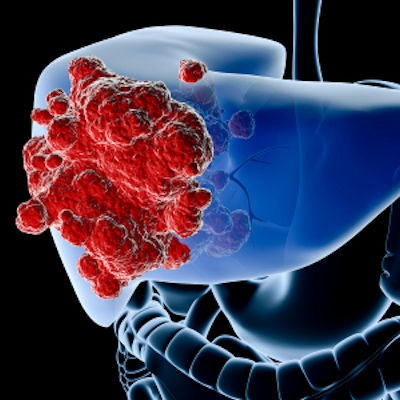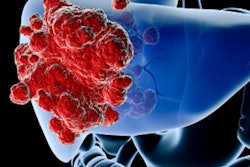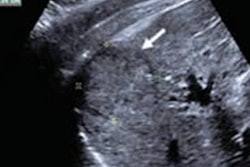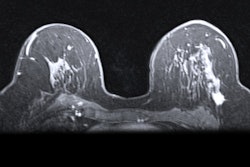
Abbreviated MRI with a short scanning protocol shows potential as a way to screen for hepatocellular carcinoma (HCC) in adults who have cirrhosis or chronic hepatitis B infection, according to a study published November 2 in RadioGraphics.
Abbreviated MRI may also help clinicians better direct treatment of patients with HCC and therefore prolong patients' lives, wrote a team led by Dr. Julie An of the University of California, San Diego (UCSD).
"If it is supported by scientific evidence in surveillance populations, adoption of abbreviated MRI could advance clinical practice by increasing early detection of HCC, allowing effective treatment and potentially prolonging life in the growing number of individuals with this cancer," the group noted.
Current guidelines for screening for hepatocellular carcinoma recommend semiannual ultrasound of the liver in patients at risk. But two patient factors -- cirrhosis and large body habitus -- can reduce ultrasound's sensitivity for this purpose, which may translate to delayed diagnosis and increased mortality, the team wrote. A shortened MRI protocol has been proposed as a surveillance alternative, since the modality offers high sensitivity and specificity.
"In the context of HCC surveillance, multiphase abdominal MRI may take approximately 40 minutes to complete and ultrasound may take approximately 30 minutes; whereas, an abbreviated MRI protocol is typically performed in 15 minutes or less and includes only the sequences necessary for detection of HCC," the authors wrote.
There are three abbreviated MRI protocols that have been explored for screening for HCC in at-risk patients, all of which can be performed in 15 minutes or less:
- Hepatobiliary phase contrast-enhanced
- Dynamic contrast-enhanced
- Nonenhanced
UCSD has used the hepatobiliary phase contrast-enhanced protocol since 2013.
Deciding which protocol to use to screen for HCC can be complicated, and it involves considering for exam time, cost-effectiveness, and sensitivity over ultrasound, according to An and colleagues. The team outlined the following factors in an effort to help their peers make the call -- noting that abbreviated MRI has higher per-patient sensitivity and specificity for early-stage HCC screening than ultrasound:
| Comparison of screening protocols for early-stage HCC | |||||
| Factor | Ultrasound | Complete MRI | Noncontrast abbreviated MRI | Dynamic abbreviated MRI | Hepatobiliary phase abbreviated MRI |
| No contrast | Yes | No | Yes | No | No |
| Acquired in less than 15 minutes | No | No | Yes | Yes | Yes |
| Cost effective (< $50,000 per quality-adjusted life-year (QALY) | Yes | No | Possibly | Possibly | No |
| More sensitive than ultrasound | No | Yes | Yes | Yes | Yes |
| Per patient sensitivity | 20%-60% | 60%-75% | +90% | 60%-85% | 80%-90% |
Other benefits to short-protocol MRI for HCC screening include potentially lower false-positive rate and fewer follow-up imaging exams and/or biopsies, the team noted.
More research is needed, An and colleagues urged.
"With more evidence, there may also be an opportunity to decrease MRI screening frequency from semiannual to annual, given the improved sensitivity for detection of small lesions," they concluded.



















